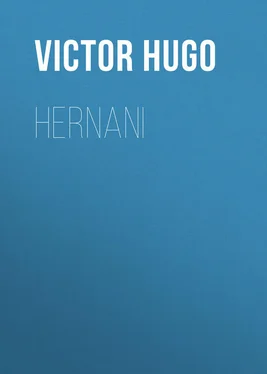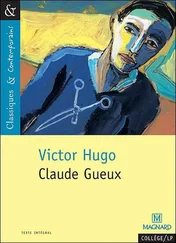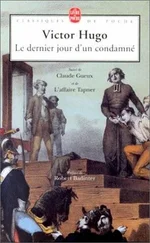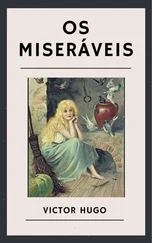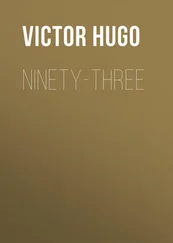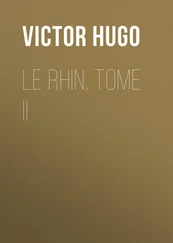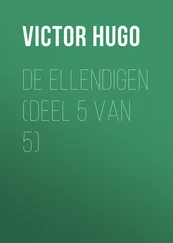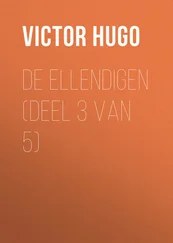Victor Hugo - Hernani
Здесь есть возможность читать онлайн «Victor Hugo - Hernani» — ознакомительный отрывок электронной книги совершенно бесплатно, а после прочтения отрывка купить полную версию. В некоторых случаях можно слушать аудио, скачать через торрент в формате fb2 и присутствует краткое содержание. Жанр: literature_19, foreign_antique, foreign_prose, на французском языке. Описание произведения, (предисловие) а так же отзывы посетителей доступны на портале библиотеки ЛибКат.
- Название:Hernani
- Автор:
- Жанр:
- Год:неизвестен
- ISBN:нет данных
- Рейтинг книги:3 / 5. Голосов: 1
-
Избранное:Добавить в избранное
- Отзывы:
-
Ваша оценка:
- 60
- 1
- 2
- 3
- 4
- 5
Hernani: краткое содержание, описание и аннотация
Предлагаем к чтению аннотацию, описание, краткое содержание или предисловие (зависит от того, что написал сам автор книги «Hernani»). Если вы не нашли необходимую информацию о книге — напишите в комментариях, мы постараемся отыскать её.
Hernani — читать онлайн ознакомительный отрывок
Ниже представлен текст книги, разбитый по страницам. Система сохранения места последней прочитанной страницы, позволяет с удобством читать онлайн бесплатно книгу «Hernani», без необходимости каждый раз заново искать на чём Вы остановились. Поставьте закладку, и сможете в любой момент перейти на страницу, на которой закончили чтение.
Интервал:
Закладка:
Alfred de Vigny is a beautiful exception. Although he followed Victor Hugo with all the ardor of his chivalrous nature, he preserved at the same time a measure, a moderation, a grace, a consistency, which the coldest Classicist might have envied. He was born in 1799, of a family of soldiers, and tells us he learned war at the wounded knees of his warrior father. In his early life he was constantly laying down the pen for the sword. While in garrison at Paris he was to be found chiefly in the libraries, and it was in camp, in the Pyrenees, that he wrote his celebrated historical novel, «Cinq Mars». I have already mentioned his fine translation of «Othello», which met with such strange and undeserved disaster in 1829. He cultivated English literature assiduously, and drew inspiration from Milton – and Ossian. The rhapsodies of the pseudo-Ossian were causing a great stir throughout Europe, and were eagerly read and applied by the Romanticists as a proof of what could be done in defiance of the rules of Boileau. Alfred de Vigny, too, like almost every novelist from that day to this, was profoundly influenced by Walter Scott. He fortified his position with several other plays, of which the best known is «Chatterton». But the works from his hand which our generation reads most are «Cinq Mars» and his lyric poems.
Alfred de Musset was a poet of such great importance that it is impossible to say, in a brief sketch like this, anything at all adequate about his delicate qualities of heart and mind, his strange, sad life, his wonderful achievements, and his growing fame. He will live perhaps when all his contemporaries are forgotten, except Hugo. Hugo himself has no other rival so dangerous.
Of Balzac, George Sand, and Dumas it is hardly necessary to speak in this connection: being novelists, they have the advantage of being read – which is not always the case with poets. The development of the novel has been the only concerted movement of great importance in French literature since the early days of Romanticism. From Balzac, the father of the realists, Hugo, the extreme of idealists, learned little. There seems to be absolutely no artistic relation between them. George Sand and Dumas were, of course, idealists, romantic to the last degree, and although Hugo in his novels manifestly strains after reality, he is much more in line with them than with Balzac. But Hugo is not a novelist at all in the sense that Balzac or George Sand or Dumas are novelists. He has written certain prose works of imagination, entitled «Les Misérables», «Les Travailleurs de la Mer», «Notre Dame de Paris», and so forth, but the matter in each case is essentially poetical, and it seems to me that the language is neither that of prose nor that of verse.
There remains one other member of the cénacle who is not so well known that mention of him here would seem superfluous, and who yet had much influence over Hugo. Sainte-Beuve (1804-1869) was one of the greatest literary critics the world has known – perhaps the greatest. At the age of twenty-four he published his «Tableau historique et critique de la poésie française et du théâtre français au seizième siècle», a work of deep maturity, showing a marvellous grasp of fact and a spirit of rare discrimination. Some men seem born with literary taste. There are boys of ten who appreciate poetry better than most educated men of forty, and can tell you the reasons, more or less correctly, for their opinions. The end and aim of all literary education should be to create and foster this faculty of apprehension and discrimination. Some come by it naturally. For others it can only be the result of large and varied reading and considerable experience in affairs, and of a culture of the heart. To Sainte-Beuve it was given in abundant measure at an early age, and he strengthened it by assiduous labor. No other language can boast a body of criticism at all comparable with his «Causeries du Lundi» and «Nouveaux Lundis». In English we prize jealously, as things unparalleled in our language and precious beyond expression for their rare beauty and usefulness, the literary criticisms of Matthew Arnold. Imagine a Matthew Arnold without prejudices, without hobbies, without mannerisms, who should give us a complete body of criticism covering the whole range of English literature, not merely discussing and estimating and comparing authors, but telling us the contents of their writings! This is Sainte-Beuve's secret. He makes us see the man he is talking about, he makes us know and appreciate his productions, and then, with a few brief, luminous suggestions, leaves the whole matter to settle itself properly in our minds. Sainte-Beuve also wrote poetry of no inconsiderable merit, but passes this severe condemnation upon all the poetry of himself and his friends, at this epoch, saying: «Il est résulté de ce concours de talent, pendant plusieurs saisons, une très-riche poésie lyrique, plus riche que la France n'en avait soupçonné jusqu'alors, mais une poésie très-inégale et très-mêlée. La plupart des poëtes se sont livrés, sans contrôle et sans frein, à tous les instincts de leur nature, et aussi à toutes les prétentions de leur orgueil, ou même aux sottises de leur vanité. Les défauts et les qualités sont sortis en toute licence, et la postérité aura à faire le départ. Rien ne subsistera de complet des poëtes de ce temps.»
But Victor Hugo outlived all parties and groups and associations of which he was a member in that early time, and his life subsequent to the exciting days of 1830 was a steady development and contains in itself a reflection of nearly everything that was going on in France.
We may consider him under three aspects: as dramatist, novelist, and lyric poet. He is greatest under the last aspect. Through all his life he expressed himself in song. Perhaps no other poet has done this so thoroughly, so beautifully, and for so long a period. So I shall speak of his personality and actual experiences when I come to consider his lyric poetry, and shall first give an account of his work for the stage and in prose fiction.
In 1827 appeared a so-called historical drama, «Cromwell», which was not remarkable for much except its lack of historical truth, and its preface, in which the young man outlined his theories and laid down the programme of attack upon the classical ideas. This attack was in reality first made with «Hernani» in 1830. «Marion De Lorme», which appeared in 1831, is a much weaker play, and abounds in all the excesses to which Romanticism was prone. Apart from the substance, which is repulsive and harrowing, when not trivial and weak, the form of the drama is loose, and one can very easily understand how such a production would offend an ear trained to the stately, chaste, and elegant dialogue of the elder poets. If this is all Romanticism has to offer, let us have back our Corneille and Racine. «Le Roi s'amuse» (1832) suffers from the same faults, and offends even more against good taste. These pieces are both strong in the main, though there are weak passages in both, but their strength is not healthy or beautiful. Victor Hugo himself called attention to the fact that he depended for his effect, in these two plays, upon the principle of contrast. It is a principle which he has employed in nearly all his work, and which is indeed one of the strongest elements of artistic effect, always and everywhere, with all writers. Hugo, however, uses it too deliberately and too exclusively. In «Le Roi s'amuse», for example, he has chosen a most repulsive figure, Triboulet, whom lie makes hideous both externally and internally, by every device known to art, and in this character he implants a pure flower of paternal love. Then he stands off and says: «Behold what I have done! How deformity looks black behind that white virtue!» The principle is useful, but he makes a forced application of it. In his novels, too, every reader will recall instances where a contrast has been insisted upon till one's patience is exhausted.
Читать дальшеИнтервал:
Закладка:
Похожие книги на «Hernani»
Представляем Вашему вниманию похожие книги на «Hernani» списком для выбора. Мы отобрали схожую по названию и смыслу литературу в надежде предоставить читателям больше вариантов отыскать новые, интересные, ещё непрочитанные произведения.
Обсуждение, отзывы о книге «Hernani» и просто собственные мнения читателей. Оставьте ваши комментарии, напишите, что Вы думаете о произведении, его смысле или главных героях. Укажите что конкретно понравилось, а что нет, и почему Вы так считаете.
